|
The beginning of 2018 marked the end of Heritage Lottery Fund funding for the project but undaunted and committed, we continued to release several stories each week and prepared for the exhibition at Beverley which was shown throughout May and June 2018. This second exhibition was smaller in scale and had a more of an East Yorkshire slant in the curation. We were ecstatic to realise yet another hugely successful response as a follow-up to the first exhibition in Hull during its first year as UK’s City of Culture in 2017. We were privileged to receive visitors once again from across the country and further afield, from Eastern Europe. After such intensive output for over two years, the project has been scaled back although the considerable resource bank has continued to prove invaluable to others who have used some of the information to extend their own work and follow up on different angles. We have been contacted by several families who have discovered snippets of their own family’s histories by coming across the website and many academics who have used the project as a model to develop paths of community engagement in their own projects. We have been pleased to share our expertise and experiences with others. In the last few months alone, we have lent our voice to work a number of organisations:
Additionally, we have supported individuals in further education colleges and schools, as well as helping out with blog posts. Thank you to everyone who has expressed an interest in the project, to those who have used our resource (and have acknowledged it), to the families who continue to contact us with queries and to private and public insights into their histories. We are simply delighted that since starting on this journey back in 2015 we have ignited the curiosity to explore Black history in local communities which then feeds into Britain’s narratives.
We are delighted that the East Yorkshire exhibition will be showing at Goole Museum from 5 February to 6 April 2019. We’re also working to respond to a further request to show the larger Hull exhibition again and we will share more when we have news.
1 Comment
Last month we were pleased to release a story by guest writer John D. Ellis, revealing the story of Richard Lisles. John’s story covered the events surrounding the drowning of Lisles, an African American soldier, in the River Humber in August 1820 in full view of his comrades. We are delighted to report that our last exhibition at Beverley Treasure House that ended in June attracted almost 8,000 visitors. We were thrilled with the feedback that showed that visitors found this exhibition (like the previous one in Hull) to be both informative and enjoyable. Members of a visiting group to our Beverley exhibition from the University of Leeds. New exhibition announcement
Following on from the success of our two previous exhibitions we are delighted to announce that the Our Histories Revealed exhibition will be shown at Goole Museum between 5th February and 6th April 2019. We welcome contact from anyone who wishes to share family histories or photographs, or knows of anyone of African heritage who is interested in sharing their story as part of the exhibition at Goole.
We were amazed and delighted to have a special comment left at the Our Histories Revealed exhibition last week and it read as follows: "Re-Black Histories: - very pleased to see a comment of mine included - What a surprise!" Denis Price was a young boy in 1942/3 who recalled: "these Black soldiers were a real novelty to us kids who'd never seen a Black person before - in fact we were a bit scared but not enough to prevent us scrounging for sweets and chewing gum which they were generous with." It is such a shame we were not there to capture the visit. We would very much enjoy hearing from anyone else who has recollections of anybody featured in this project including from Denis himself. Don’t forget the exhibition is still at the Beverley Treasure House until the end of June. The study pack can be picked up at there, or downloaded on the Exhibitions page.
Image of Gifty taken by Emily Wilkinson and used with Emily's permission. We’ve had great success with this project since we began working on it in November 2015. We’ve uncovered some amazing stories, and covered a wealth of historic areas in Hull and East Yorkshire – from unknown black artists and entertainers, to exploring the maritime sphere. Our funding from the Heritage Lottery Fund ran out in January this year, so we’ve continued so far on a voluntary basis. This means that we need to scale back our releases from weekly to monthly. To reflect on what we’ve done so far, we sat down with project founder Gifty Burrows to get her thoughts on the African Stories in Hull & East Yorkshire project. We discussed what Gifty hoped to achieve, the local and global success of the project and exhibitions, and her plans for the future. What made you do the project? This project came about through a personal awakening about the historic importance of the transatlantic slave trade and an increased awareness of Black British history and the struggles Black people have had in claiming their place in British history. Having done nothing in compulsory education about either slavery or contemporary issues about race, this interest came because of my dual identity in being both British and African which seemed to be particularly relevant to me and it seems to other people in how they placed me in their consciousness. Certainly, issues about the historic and more recent overview about race still shape people’s perceptions and behaviour. Also, it struck me that as I live in a county synonymous with the abolitionist William Wilberforce, that we should consider what he did, rather than simply using his name. I thought there is a social responsibility in this region to recognise the effect of slavery on those of African descent in terms of displacement - which is the reality of the impact of slavery. Although slavery is mentioned, the purpose of this project is to demonstrate that there is more to Black presence and Black social history in Britain than slavery. Who is your team? After my initial idea in November 2015, I used two other people as my sounding board to see if some of my ideas and initial proposals would be workable, including holding a seminar and setting up a website with the help of Dr Carolyn Conroy (who went on to become our Web Manager). An application for Heritage Lottery Funding was submitted in March 2016 and funding was granted in May. We engaged a Lead Researcher in September which meant that we could go full steam ahead with the release of several stories each week. We have consistently been a team of three, myself as the Project Lead (unfunded), Dr Lauren Darwin as the Lead Researcher (funded) and latterly Thomas Burrows as the web Manager (unfunded). Many volunteers, transcribers and guest writers, some of whom contributed stories on several occasions, are all deeply appreciated for their support and are acknowledged on our Contributors list. How did you get the funding? We applied to Heritage Lottery Fund and were successful. At the time we had never done so before and didn’t have a view of it being difficult or otherwise. It was only later that we were able to reflect on what a good application we must have put in given the stiff competition at the time with all the other projects targeting Hull as the City of Culture. We also had other donations from other lesser partners all of whom are acknowledged on our contributions page. Are you with the university or the council? To clarify, although we have been supported from the Wilberforce Institute of Slavery and Emancipation (WISE) who were kind enough to host some of our events, this has not been a University of Hull project. We have also worked in partnership with both Hull City Council and East Riding of Yorkshire Council to bring two exhibitions to the public but again this has not been a council project. In addition, the James Reckitt Library Trust (Untold Stories) made the Contemporary Stories element of oral histories possible. However, this has been the idea of an individual who wanted to make a difference and was determined to show what was possible as an independent worker. I hope I have demonstrated what is possible for anyone to do even around a part-time job such as mine as an educationalist. How have you done all this with only the three of you? We were all passionate about the project and have a genuine interest in the subject. We also felt the need to get these wonderful stories out. Our output has been so frequent because of the wealth of stories there to tell. There was huge excitement with every new discovery and it felt good to be able to share this at regular intervals. How did you find the stories? The older stories were teased out by Lauren through her meticulous research skills. The family stories were a combination of archival research, supported writing and editing or self-written pieces. Where a family has had direct involvement with a story, we get them to sanction what is included, especially where we bring the story up to the modern day. How did you get the people to do the oral histories? A few people were approached initially and others became a part of it by association or recommendation. I always contacted the participant to explain the purpose of the project and what form the oral history would take. It was imperative that the participants felt comfortable about their contribution to this part of the project and it was made clear that they would have some control in the final output. It was crucial that they were not given a trial run of the questions and certainly those in the early days did not know what they would be asked. Some of those participating later on were told that examples previous oral histories could be found on our website and it was left to them if they wanted to listen; many chose not to so that they could come to it fresh. The questions were varied to avoid rehearsed answers. Although we engaged Jerome to conduct the interviews, I was keen to shape the direction of the questions and was present throughout. This helped to build the trust between myself and often a stranger. Undoubtedly the participants were reassured and had confidence in the fact that I readily understood some of the strands that came out in the conversations. The process was enriching for the three of us in the room. The participants felt positive about sharing their stories and were passionate in their desire to have their stories told and have their presence acknowledged as part of the wider project. A frequent initial comment was that they felt that their lives were ordinary and that they themselves were not particularly remarkable and yet they came out with memories and views that they hadn’t thought they knew or considered before. For many participants it became a journey of self-discovery as, it made them think more deeply about various points in their own lives and prompted a discussion about their own family histories. Some said that it made them ask questions and actively listen to the responses they were given; something which doesn’t always happen in the familiarity of family life. There was great reward in hearing feedback from others especially from the transcribers who learnt about some the more difficult and unjust experiences for people of African descent at very close quarters. It gave them an insight which would otherwise be beyond the communities they engaged with. How can people contact the project? The project website is still live and we can be contacted through this website, Facebook and Twitter. Is it still carrying on? Yes! We didn’t know what we would find, how many lives would be re-discovered or how many people would want to engage and have their presence acknowledged but what a rich pool – there is still much more to include. However, regular output takes funding and as that came to an end at the start of this year, we need to scale back as we continue working on a voluntary basis. This means that we will try and release a story regularly - monthly if we can - but we welcome help on that. So please share your family stories, offer ideas of anyone you come across, and let us know of anyone who might be interested to engage. This project has proved to have made a huge wave in the pond, not just the ripple we initially thought we would get. British Black history is often forgotten or consigned to the background except when Black History Month pops up in October and then it is too often peppered with notable people from America. This focus on British Black history is rarely done and we are proud to have broken new ground in what we have achieved. It’s a great resource, how come it’s free? We take the view that as educators, we do not see education as business. Learning benefits us all. Have you got schools involved? When we designed the project, it was important to us that schools should engage and could have the opportunity to be able to use the bank of resources freely. We have had eight events to date directly relevant to schools and at each one we have actively encouraged schools to participate. Where possible, we have tried to make schools aware of the website, exhibitions and the current study pack. How come nobody has done this before? I don’t know… perhaps because it was a dip into the unknown; it took effort to get started, to do it, there was no guarantee of success? How do you know what the impact has been? We have had direct feedback via the website, many people visit the pages with regular viewings. We know of other people doing similar projects elsewhere. We have been asked for advice. We have had contact from academics wanting information about certain aspects which we have covered. We have had significant media interest. We have been invited to several conferences. We have had direct contact from people in Malawi, Ghana, New Zealand, Australia, France, the USA and many cities in Britain. What part did you play in the project? I have driven the project and made sure that momentum is not lost. Stories need to be coordinated, followed up and nurtured, and need much support for them to become fully fledged. It takes more time and input than I anticipate. I have been exceptionally fortunate to have had excellent support in our tiny team. Did it help that you are African? Yes, there is an advantage in having a deep understanding of the experiences of the people in many of these stories. There are very few occasions being Black in Britain is seen as an advantage so it is certainly good to have the opportunity to celebrate difference. Do you think this will make any difference to those with negative views about diversity? No. Some people are resistant to ideas other than their own especially if it has been set through years of reinforcement. It is also easier for them not to have their beliefs challenged – thinking takes effort and change can be seen as impossible. The self-absorbed navel gazers see the world only in relation to themselves and this project is about looking out and seeing underneath the obvious…that is too much of a challenge for many. What would you have done differently? I would have extended the budget. I was very fortunate in being able to call on a lot of favours and good will to get things done. I would have also put in enough in the budget to pay myself! I also wish I had the personality to be less exacting in my standards. I am grateful that those I worked with understand that I am driven by a need to work for a common good. How did you overcome resistance or scepticism to the project? It perhaps helped a little that I had experienced success in my previous project of lighting the Wilberforce monument and gilding the abolition scroll. With that behind me I had the confidence to tackle the initial scepticism that was forthcoming when we first embarked on the project. There were some people in the city who felt deeply that there would be a limited pool of material to draw upon and that the project would not be successful. As we accessed more and more stories and the publicity gradually grew that instilled an even greater level of self-confidence to go on and prove the doubters wrong. In the early days I occasionally wondered if the sceptics would be right, I worried that the project would have no substance, but I felt strongly enough to try anyway. I suppose I’m frustrated by people who are too ready to accept things as fact without questioning anything. Logic told me that what traditional history taught us couldn’t be right – I just hoped that that conviction applied in this less diverse part of Britain too. What do you want to do next? I would like to manage another historic project and I’m looking for opportunities to take on my next challenge. As a strong, successful team we are happy to advise and take on consultation work. Exhibition now on!
The Our Histories Revealed Beverley exhibition is still on and will run until 30 June so catch it if you can. We've had some great comments from visitors so far:
This Saturday (5 May) we open our second exhibition at Beverley's East Riding Treasure House which runs until Saturday 30 June.
After the tremendous success of last year's exhibition in Hull, our latest opportunity to showcase the projects findings will have a greater focus on the people of African descent who visited, lived or worked in East Yorkshire between 1750 and 2007. We have a mix of our most popular releases from last year as well as some newer stories on display. Additionally, to complement the exhibition, we have a free study pack which can be collected from the Treasure House during your visit. The exhibition will feature amongst others the Black servicemen who were based in Cottingham, Filey and Pocklington during the Second World War, the activists and abolitionists who came to the East Riding to speak out against slavery and to campaign for equality and the accomplishments of Black actors, entertainers, sportsmen and entrepreneurs in our area. During the exhibition period, we're hosting three events which include:
Head to the Events page for more details or if you would like to book a place at one of these events.
Saturday was sadly the last day of our exhibition 'Our Histories Revealed' at the Hull History Centre. The last four weeks have been extremely rewarding as they have enabled us to engage with local people as well as visitors who have travelled from far and wide to see our findings showcased through the medium of video, audio clips, art instillations, photographs and text.
To compliment the exhibition we have hosted several events which have been very well attended and have successfully captured the interest of diverse groups of people including notable dignitaries, children, members of various history societies, those with a keen interest in local, regional or Black British History and academics. Below is a more detailed account of our exhibition activities.
Opening Night and Visitors Comments.
A blog about our opening event can be found here and some of the fabulous comments we have received from visitors about the exhibition can be found here. If you visited our exhibition and didn’t leave a comment but on reflection would like to, please submit your thoughts to us here.
In the Media
The project has featured in the media several times over the past month. We have appeared on the television and radio stations promoting the exhibition and speaking more generally about the project. Here is one of our latest media clips. You can view and listen to more in our media section here. Newspaper coverage of our project exhibition from the Yorkshire Post 25 September 2017
Schools Study Day On 6 October, we held a study day for school and college students to tie in with our exhibition and Black History Month. Although, we reached out to every school in the area, unfortunately only two took the opportunity to attend this free event. Nonetheless, a total of approximately 60 students from Boulevard and Hull College came to our schools’ study day. We began by giving an overview of British Black history before moving on to discuss some of the people of African descent who had visited, lived or worked in Hull and East Yorkshire between 1750 and 2007. This discussion was followed by a live oral history interview with brothers Bax and Lans (pictured below) from the band Bud Sugar. They spoke about their family, growing up in Hull and their connections to Africa. The students also visited our exhibition and filled in our Adinkra worksheets. We had an amazing morning with the students and hope they all learned something new about Black history and African culture. The reports from their teachers were very positive. 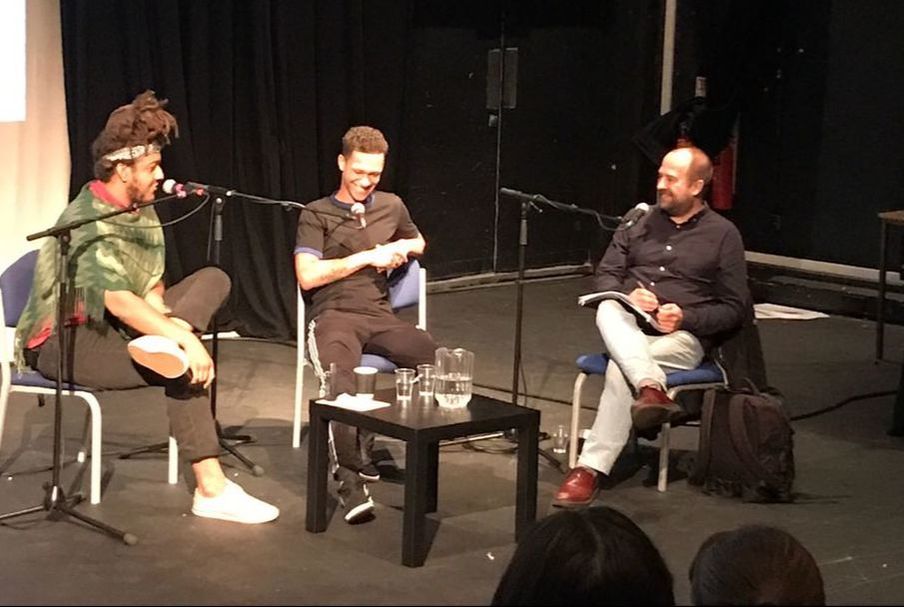
Study Day at WISE
On 7 October, the project team held a conference at the Wilberforce Institute for the study of Slavery and Emancipation (WISE). In total 70 people attended this event where they heard from various speaks about the interesting stories of Black service personnel, African lion tamers and the Brandesburton Pygmies. Dr Lauren Dawin, our Lead Researcher, gave an overview of the project findings, the themes that were used to shape the exhibition and our plans for the future. Dr Carolyn Conroy, our Website Manager, explored Black Lion Tamers and Boxers in nineteenth-century Hull and East Yorkshire. Mark Johnson, a historian who has published the pioneering book Caribbean Volunteers at War, talked about the West Indian pilots who fought for the mother country in the Second World War. Jeffery Green, a specialist in Black history, delivered the story of the Brandesburton Pygmies. Jeff described their journey to the region, experience in Britain and their arrival back in Africa. John Ellis, an experienced history teacher, retraced the Black presence in the British army from the late eighteenth to the mid-nineteenth century. In particular, he highlighted soldiers of African descent who fought at the Battle of Waterloo, including John Lewis Friday. Below is a slideshow of some images from the event.
A Big Thank you!
Finally, we would like to say a huge thank you to all of the wonderful City of Culture volunteers who have helped throughout our exhibition and associated events and we hope that those of you who have missed the exhibiton in Hull this time around, will join us in Beverley in 2018! Watch this space for more details. We are entering the final few days of our exhibition 'Our Histories Revealed' at Hull History Centre so we strongly encourage you to go along and catch it while you can!
Saturday 21 October is the last day for a visit and the History Centre will be open until 4.30pm on that day. For more information about getting to the centre follow this LINK. Exhibition Comments Page So many wonderful messages and comments have been left by visitors to the exhibition that we have decided to share them and put some of them on a dedicated page on the project website. To take a look go to our new 'Exhibition Comments' page HERE. Last week, Tuesday 26 September, we held our exhibition open evening at Hull History Centre. It was a fantastic occasion and attended by the Lord Mayor of Kingston upon Hull, Councillor John Hewitt and his Lady Mayoress, Honorary Alderman Betty Hewitt and William Wilberforce – all patrons of the William Wilberforce Monument Fund. Around one hundred people connected with the project also attended the event which showcased the multi-sensory experience on offer. It was clear from those that were there that much work had gone into creating this ground-breaking exhibition, which looks at the histories of people of African descent, an often neglected aspect of British social history in this region. Comments were made on how the artwork, colour, auditory and visual media used made the experience highly varied with added interest at every turn. We received overwhelmingly positive responses to the evening which proved thought provoking for some and a very emotional personal experience for others. Other positive comments have been coming in since, from local visitors and those from further afield such as Louth, Bristol and London. Last Friday we had the privilege to host His Excellency the High Commissioner of Ghana and Lord John Prescott who both visited the exhibition together with the Lord Mayor and Lady Mayoress of Hull who kindly made a return visit. The High Commissioner was representing the former President of Ghana, John Kufuor who was unable to attend. It was a privilege to host such a distinguished visitor to the city and the project team is immensely proud to have hosted his visit. We are grateful to them for taking time in their hectic schedule to visit our exhibition. **The ‘Our Histories Revealed’ Exhibition is on at Hull History Centre until 21 October 2017** Exhibition Opening Night Slide Show This is an exceptionally busy period for our project team as we prepare to host a range of engagement activities in Hull. We hope to meet as many people as possible and further demonstrate that Black men, women and children contributed to the social, economic and cultural fabric of this fantastic region. 'Our Histories Revealed' Exhibition Last Tuesday 26 September marked the opening of our exhibition, entitled ‘Our Histories Revealed’ at the Hull History centre, showcasing the wonderful stories, heirlooms, and artifacts connected with our project. Don’t forget you can bring along a copy of a photograph which celebrates African presence in Hull and East Yorkshire for our ‘Who do you know’ exhibition board. Schools Study Day On Friday 6 October, we are hosting a study day at Hull College where we will be talking to secondary school and college students about Black history. Our Project Lead, Gifty Burrows, will give an overview of our project and I will speak about how we can integrate Black British history into the curriculum, before Jerome Whittingham and Bax (from local band Bud Sugar) conduct an oral history interview and highlight the Contemporary Voices strand of our project. To end this fabulous educational event, we will be taking students to the Hull History Centre to show them our exhibition. Project Study Day at WISE On Saturday 7 October, we are hosting a conference at the Wilberforce Institute for the study of Slavery and Emancipation (WISE) between 10am and 3.15pm. The project team together with Mark Johnson, Jeffery Green and John Ellis will be speaking about a range of topics which include lion tamers, pygmies and soldiers. Please consult our Events page for further information. If you have not yet registered, please make sure you contact us to reserve your place. Hull History Centre Presentation On 10th October, I will be giving a presentation between 12.30 and 1.30pm at Hull History Centre’s lunchtime club. I will be speaking about William Wilberforce’s legacy and how people of African descent honoured the abolitionist while visiting this region. Exhibition Guided Tours
On 17th October, I will be conducting guided tours of our exhibition at the Hull History Centre between 2pm and 4pm to give additional information on the stories we have featured and will answer any questions about our exhibition before it closes on 21 October. Alongside these events we also have a new batch of stories and blogs which will be brought to you throughout October. Please continue to check our website, project blog, Facebook and Twitter for notices of our latest releases. 'Our Histories Revealed' Exhibition: Hull History Centre Four months from today, on 26 September 2017, we will be launching our first project exhibition at the Hull History Centre. It will bring together creative mediums such as pictures, videos, artwork, memorabilia and music in a multisensory representation of African stories in Hull and East Yorkshire. Our exhibition not only sheds light on the region's neglected Black history, but inherently merges themes of migration, inclusivity and community in a new and innovative way. This exhibition offers something for everyone and can be enjoyed by the whole family. **Make sure you save the date! See our exhibition poster below and click HERE to go to our Events page for further information!** A Reminder: Bud Sugar and Chiedu Oraka Gig In addition, don’t miss Bud Sugar and Chiedu Oraka’s exciting gig at Fruit on Wednesday 12 July. This event is part of Hull Jazz Festival and is not to be missed. For more information see http://www.jnight.org/whatson/bud-sugar-chiedu-oraka Click here to watch and listen to Bud Sugar’s oral history interview. Click here to listen to Chiedu Oraka’s oral history interview Other News:
Hatfield Triathlon We would also like to take the opportunity to thank Mike Greenwood, who is taking part in the Hatfield Triathlon to raise money for our exhibition. You can make a donation by following this LINK. Good luck Mike! |
Follow usArchives
April 2023
Categories
All
|
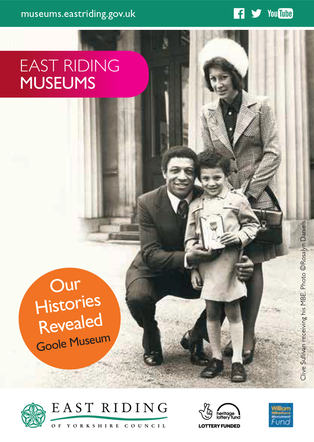
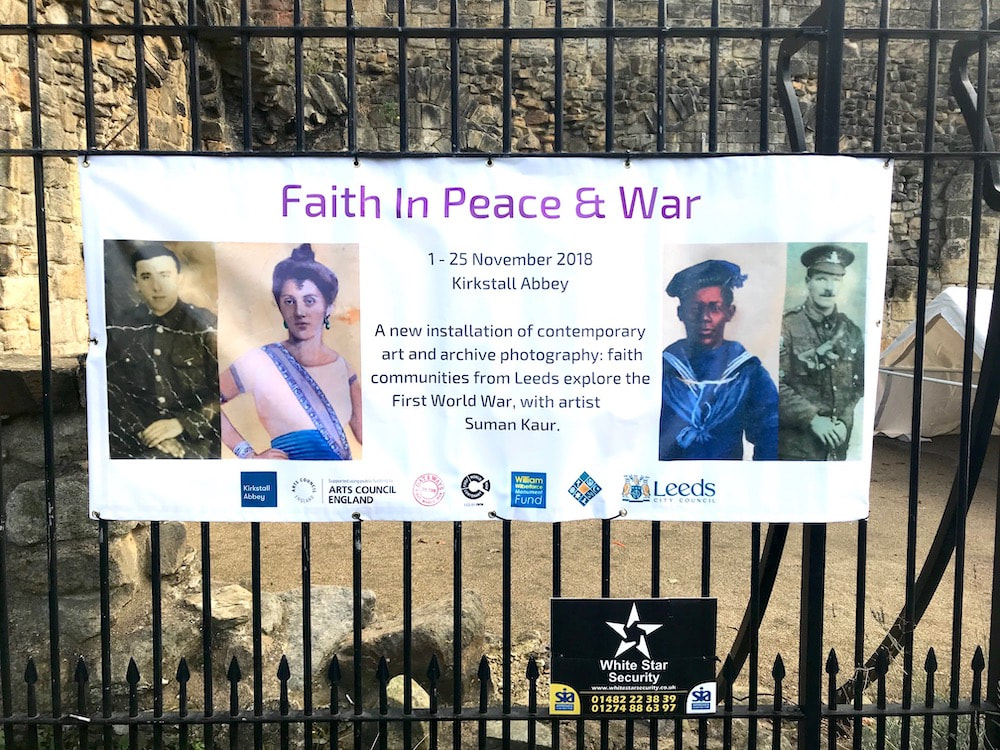
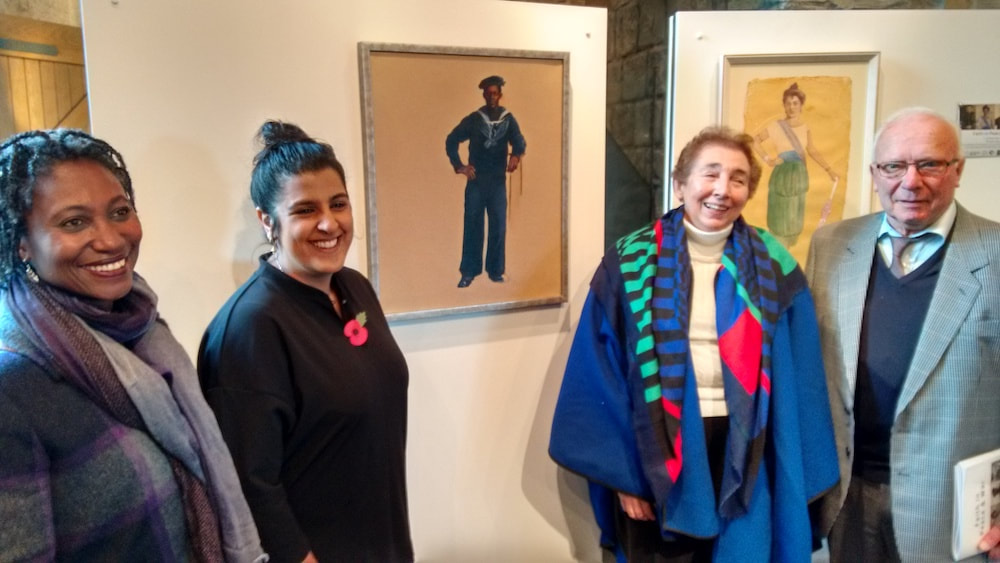
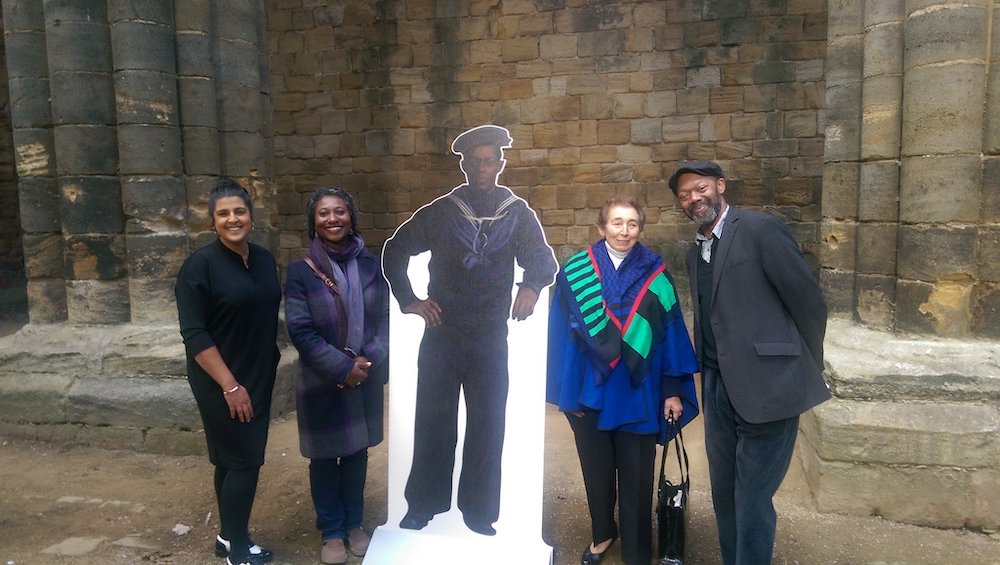
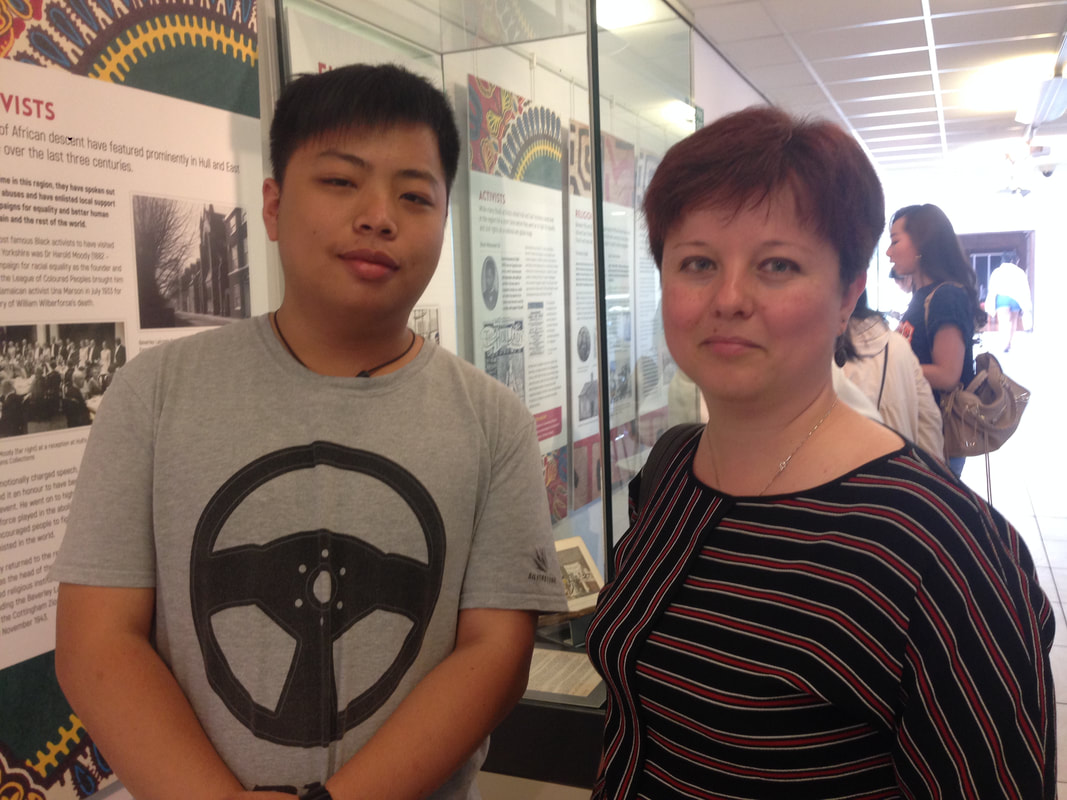
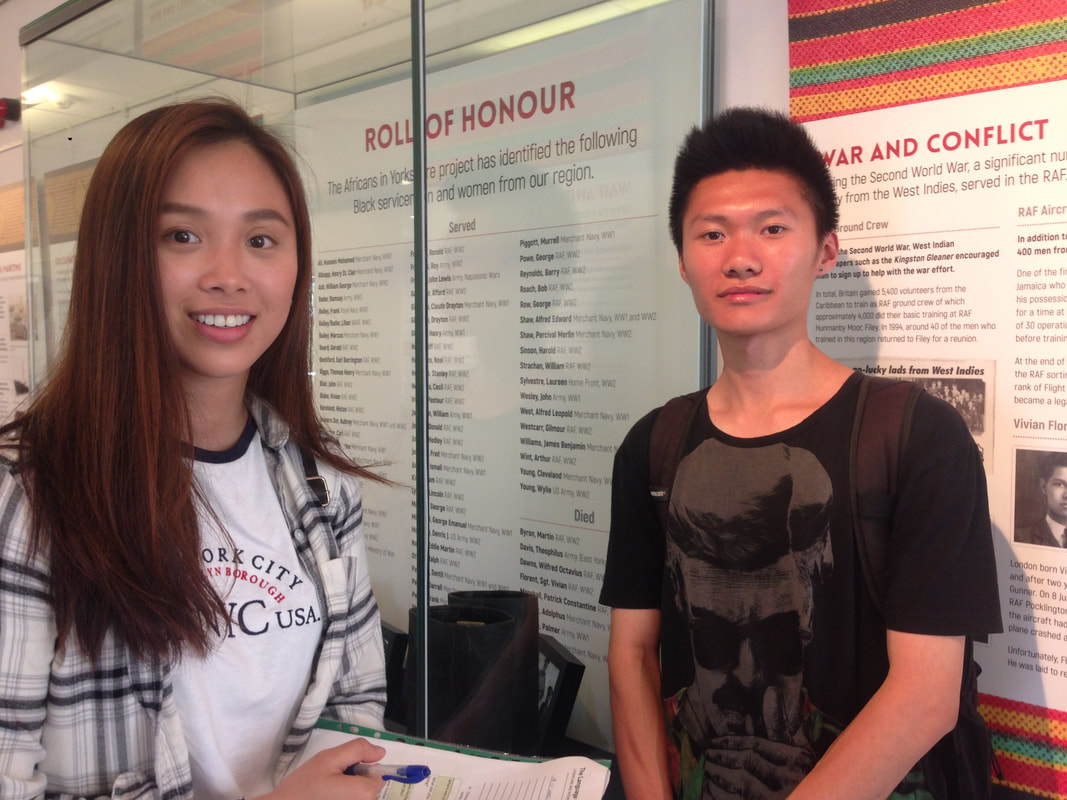
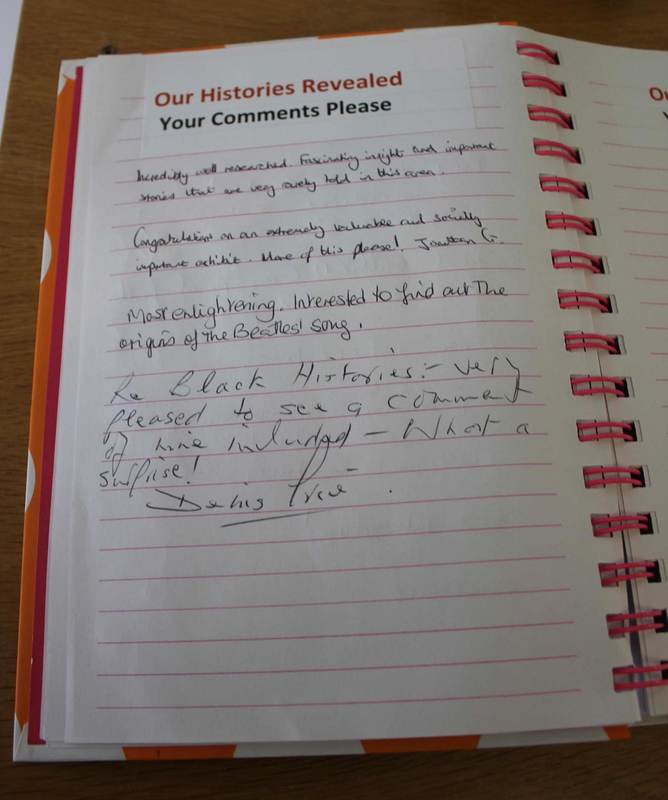
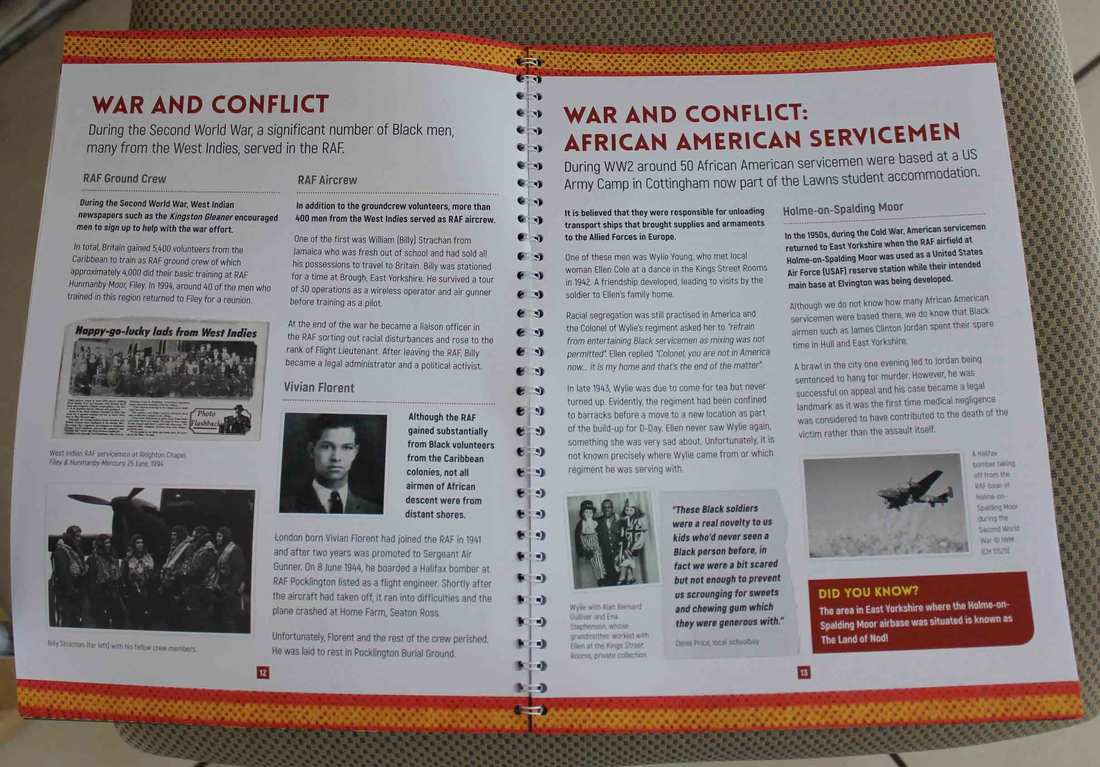
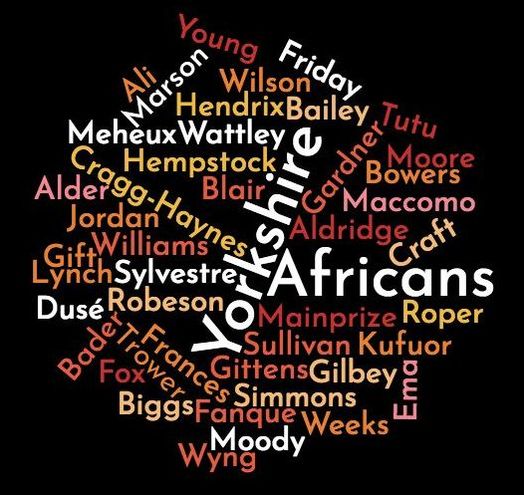
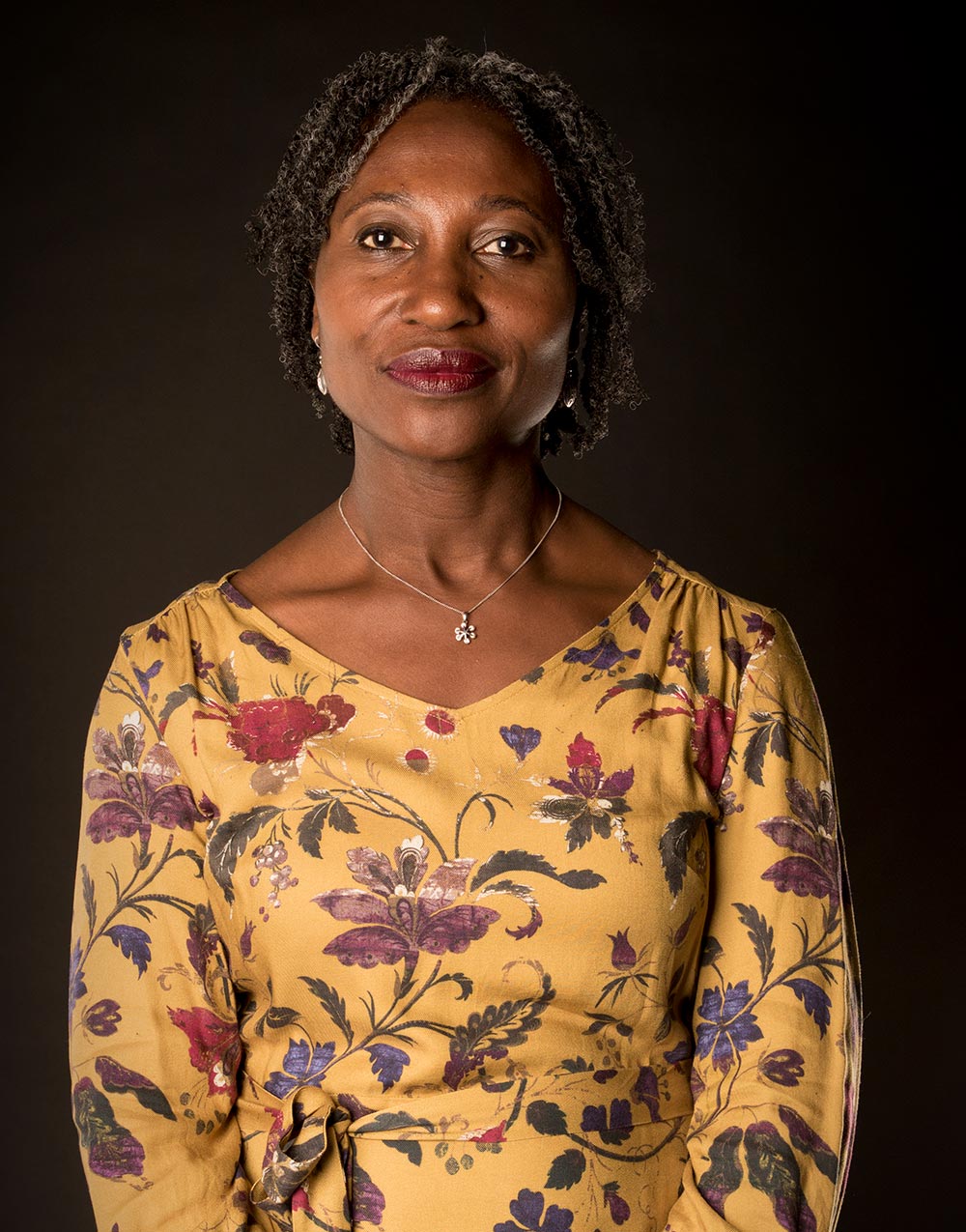
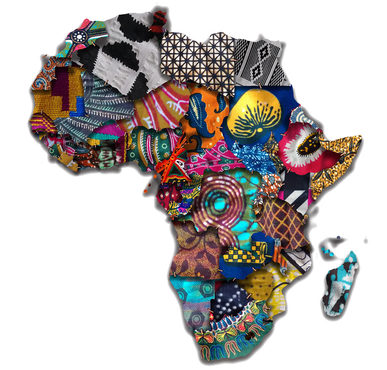
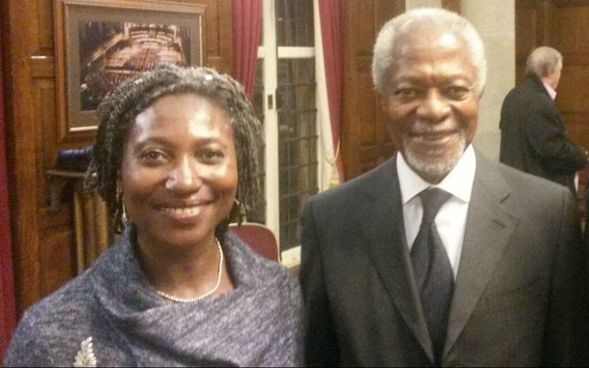
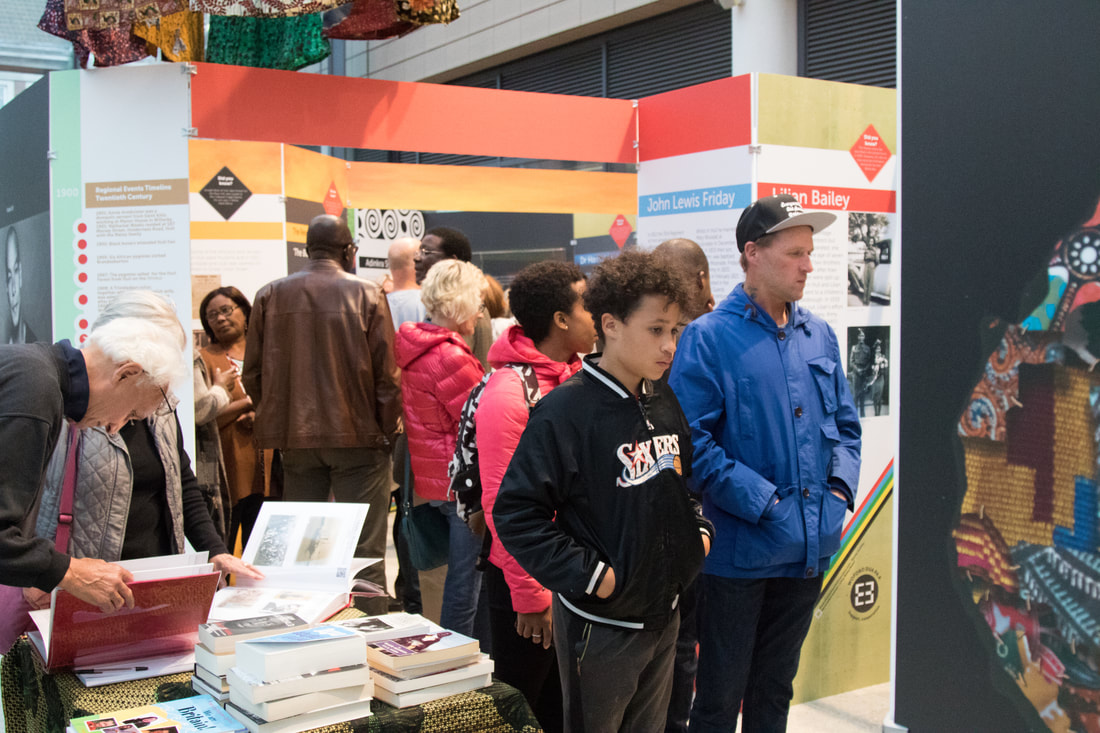

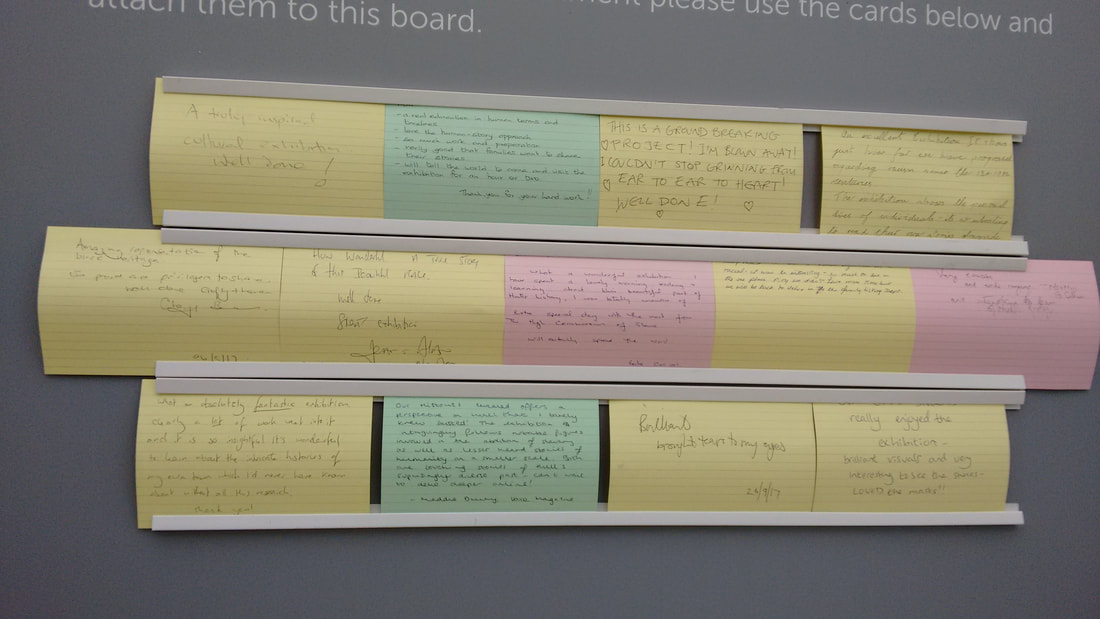
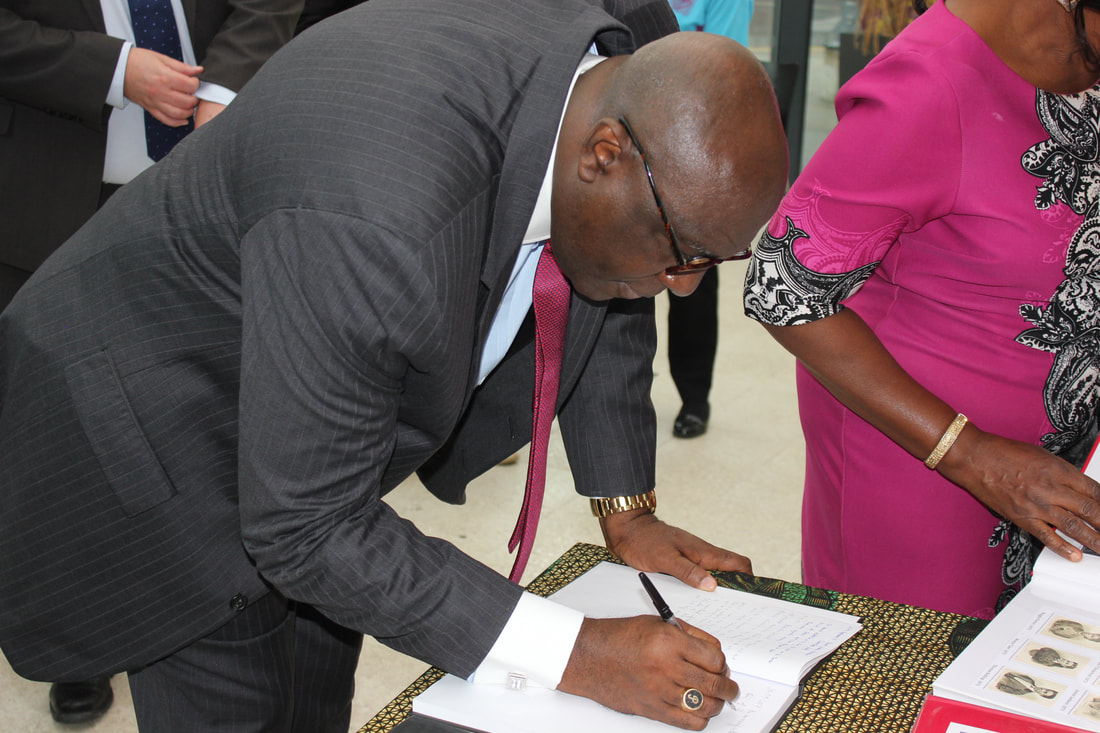
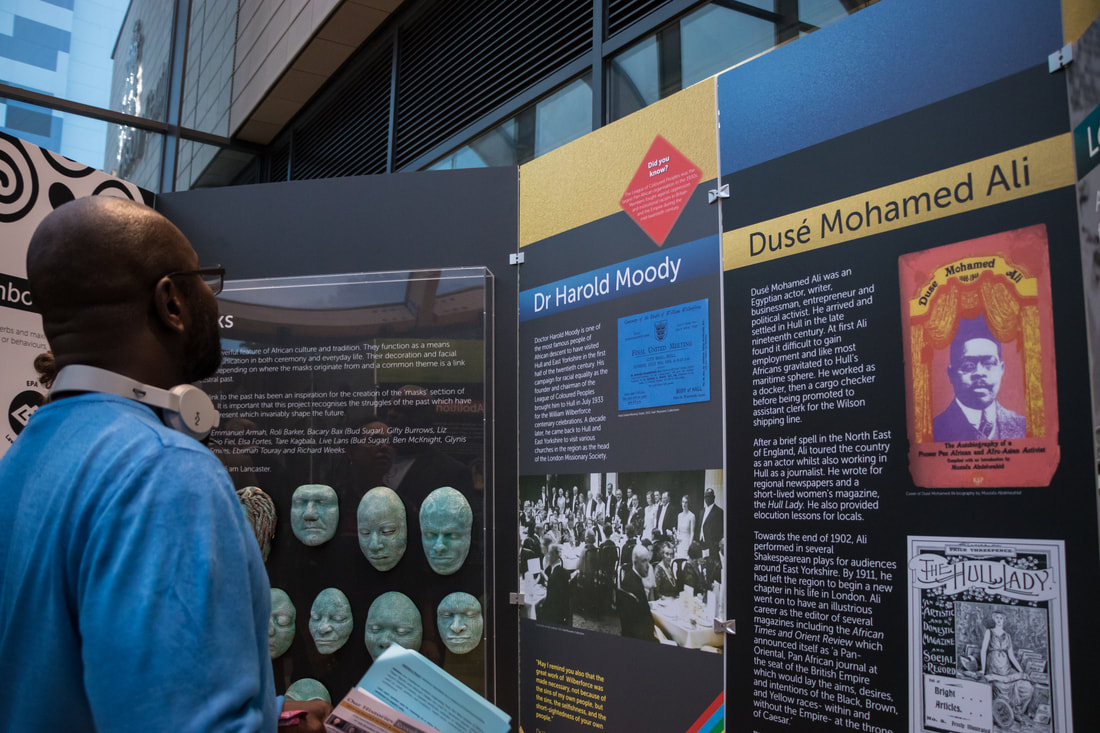
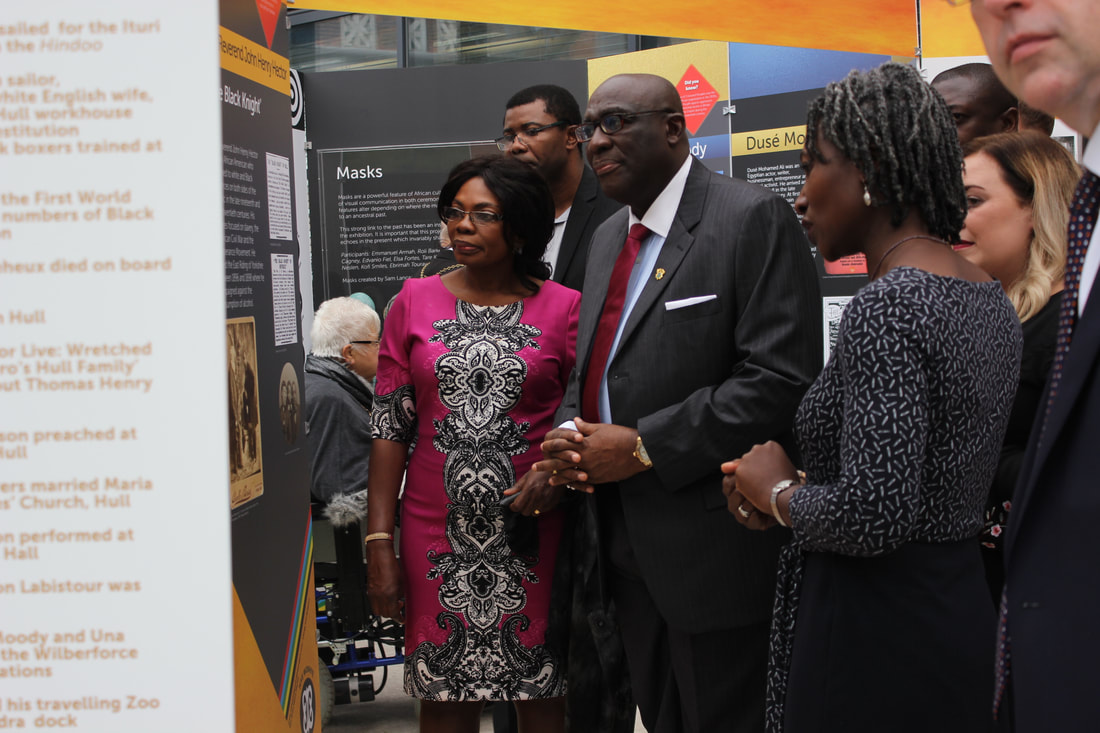
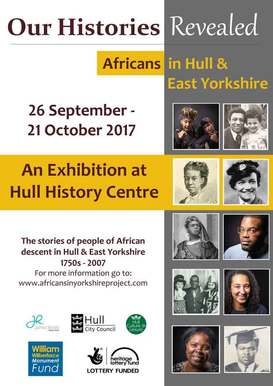
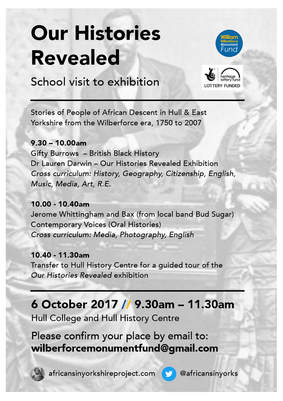
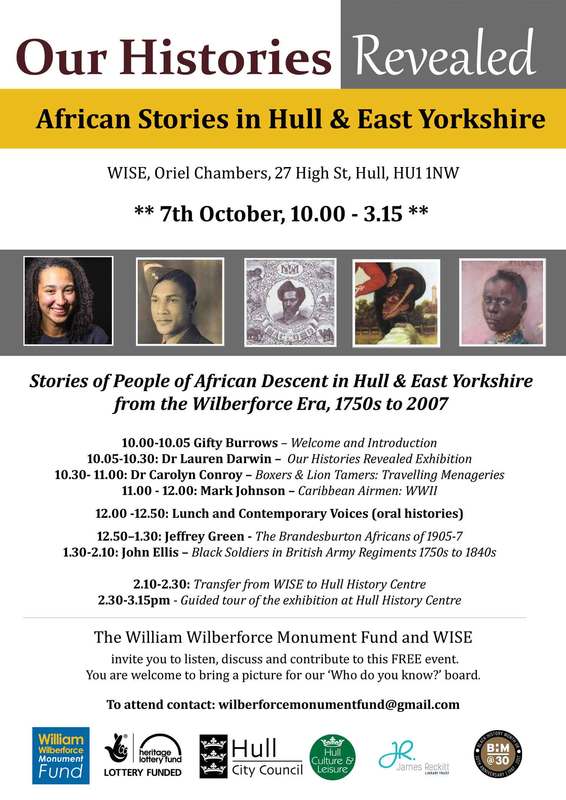
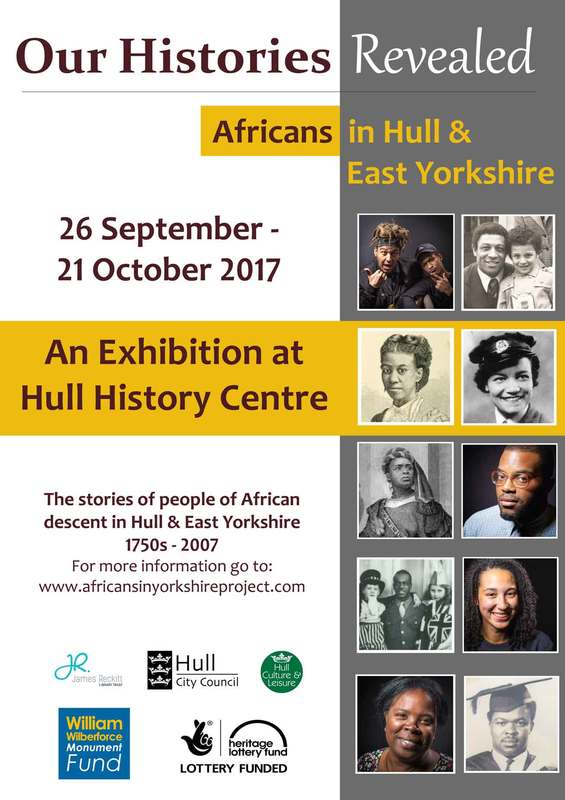
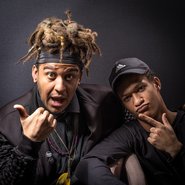
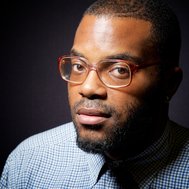
 RSS Feed
RSS Feed